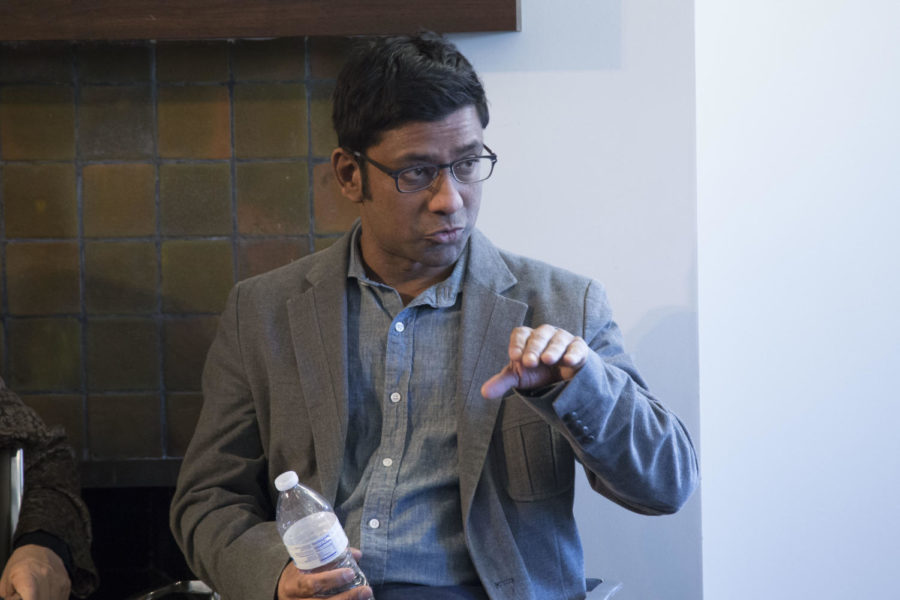In a virtual event hosted by the Seminary Co-Op on Wednesday, February 9, Colleen Connell, the executive director of the American Civil Liberties Union (ACLU) of Illinois, met with Aziz Huq, the Frank and Bernice J. Greenberg Professor of Law at the UChicago Law School, to discuss Huq’s latest book, The Collapse of Constitutional Remedies.
In his book, published in December of last year, Huq argues that the United States’ federal courts are fundamentally biased against minorities and police violence victims and fail to protect the individual rights of America’s vulnerable. According to Huq, courts have “not just a Republican problem but an institutional one,” which can only be solved by a shift in their institutional mindset.
Huq opened the event by discussing Baxter v. Bracey, a police brutality case presented to the Supreme Court in 2020. Alexander Baxter, a Black man, was apprehended by police after burgling a house, and officers released a police dog on him even after he surrendered and lay flat on the ground. Baxter sued the two officers for use of excessive force, citing the Fourth Amendment. The Supreme Court denied his petition, citing “qualified immunity,” an unofficial legal stipulation that protects government officials from civil suits as long as they do not clearly violate another’s constitutional rights.
“The Constitution says a lot about rights, but not much about remedies,” Huq said. When ruling in cases like Baxter’s, judges refer to doctrines like qualified immunity rather than codified law. “The subjectivity of these doctrines produces regressive, asymmetrical, and unequal rulings.”
Connell asked Huq why federal judges refuse to allow “individuals who are challenging discrete acts of state violence to get into the court.” Huq’s first response: the politicization of our courts.
He explained that American courts are “porous to presidential politics, specifically the politics of law and order,” arguing that the tough-on-crime mentality from Richard Nixon’s presidency endures. Huq asserted that the current Supreme Court “has preferences that are even more anti-minority and more anti–police violence victims than has been the case maybe for a century,” which make it unlikely for plaintiffs to get a trial after being injured by a police officer.
However, Huq cautioned critics from chalking up the court’s issues to its conservative majority. There is a deeper, institutional problem with our federal courts, he said, that transcends party lines.
“I think that it is far too common for judges even on the liberal side of the spectrum to prioritize the interests of the court over the rights of marginalized constitutional rights holders,” he said. Huq cited Rivas-Villegas v. Cortesluna, a recent case in which the Supreme Court unanimously decided to expand qualified immunity by offering new protections to officers being sued for excessive force.
Huq believes that many judges, whether liberal or conservative, hesitate to hear individuals suing on the basis of their constitutional rights. Many judges fear that litigating each case fully will lead to a “flood of cases,” in which thousands of people will try to sue for personal damages. According to Huq, this is why the courts are more partial to hearing cases brought by corporate or government bodies than those brought by independent petitioners.
In proposing solutions to these tendencies, Huq acknowledged the work done by advocacy groups like the ACLU, which have enacted reform legislation to increase transparency between police departments and the public. He also emphasized the importance of state-level accountability, noting that local politicians protect the police just as courts do. “The mayor of any big city rises and falls with the crime rate. Mayors are a hostage of the police force,” he said.
When asked how he would change the mindset of the judges themselves, Huq said that he would begin by quelling judges’ fears of case flooding. For example, when faced with 100 stop-and-frisk cases, the court should “reverse the policy as a whole” rather than litigate each petition independently. Solutions like these, according to Huq, would “fundamentally require courts to accept that their job is to protect the individual rights…of the Alexander Baxters of the world.”
In his conversation with Connell, Huq also proposed a more radical answer to court reform, wherein congressionally appointed public defendants, rather than federal courts, decide cases for police damages. “Those damages should be drawn out of the flow of funds…that goes from the federal government to the relative policing unit,” leveraging police dependence on federal support to enact change. Though Huq acknowledged that creating an independent body to circumvent the courts would be politically impractical, he believes courts will remain biased against individual petitioners without institutional change. “I just don’t think our courts will do the job that we think they are supposed to do.”









